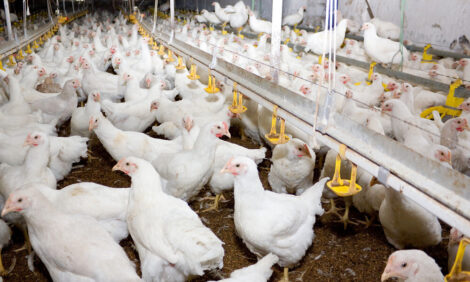



Malawi's Poultry Production Increases Despite Climate Change
MALAWI - Statistics have shown that poultry production in the seven districts under the Blantyre Agriculture Development Division (ADD) has increased since 2010, despite the advent of climate change whose effects include the adverse rise in the earth's temperatures.Malawi's The Nation reports that according to the figures, the division this year has already registered a poultry production of 20.6 million, an increase from 19.2 million recorded in 2012.
While acknowledging that the division has never carried out any assessment on the impact of climate change on the increase in poultry output, the ADD's chief animal health and livestock development officer Patricia Mayuni told the Malawi News Agency (Mana) that its influence cannot be ruled out entirely.
"As an ADD we attribute the increase to various factors that include well-equipped farmers in disease control, feeding regime and other husbandry practices, among them appropriate livestock housing.
"Despite the said factors, a climate change hand cannot be ruled out though it can either negatively or positively influence the production outcome," Ms Mayuni pointed out.
She said since climate change is characterised by a rise in temperatures and that most poultry birds reproduce well under a considerable hotness, the factor may have played a part regardless of the other factors.
Ms Mayuni nonetheless was quick to point out that under extreme temperatures that are sometimes associated with climate change, some poultry can hardly cope with the conditions considering their body temperatures.
She pointed out that much as climate change might have played a role, the global increasing temperatures are associated with a boom in animal diseases that form one of the many challenges that farmers face in their quest to achieving quality production.
The Environmental Affairs Department assistant director Michael Makonombera concurred with Ms Mayuni that climate change ight have caused an increase in livestock diseases including those in poultry.
"Disease like Newcastle are common in high temperatures, which means that with climate change, poultry are bound to experience their upsurge," explained Mr Makonombera.
He, however, ruled out the possibility of climate change contributing to increase in poultry production observing that the rise in temperatures is extreme to the extent that livestock can hardly cope.
Blantyre ADD comprises Phalombe, Neno, Mwanza, Thyolo, Mulanje, Chiradzulu and Blantyre districts.








